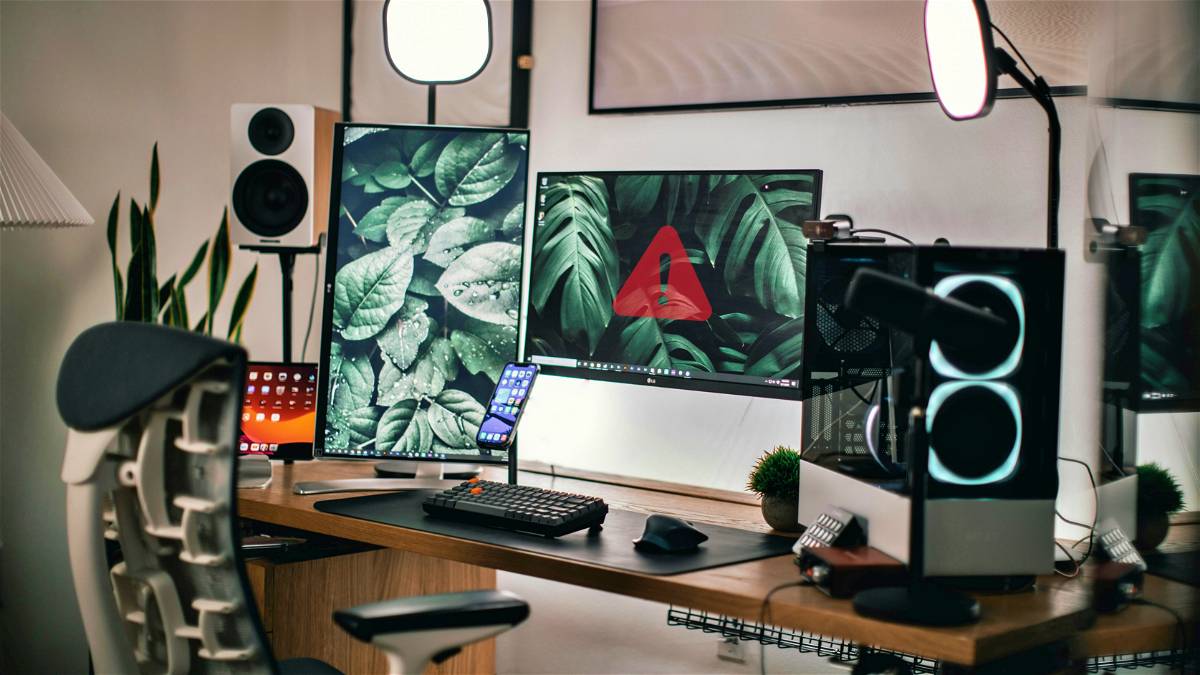Table of Contents
This is what you should know when you are going to run a very demanding game on your computer.
Every streamer needs a well-organized setup
Join the conversation
In the digital age, video games have gained a leading place in entertainment, reaching have very realistic graphics, impressive worlds and high-quality gameplay that little by little continues to evolve. However, one doubt persists among experienced players and newbies, as many wonder if it is actually possible for a game can damage a PC due to their demands.
Of course, it is a complicated question to answer, since it is something that It depends on many factors. In this article, we explore the various aspects that influence the risk of damage, from equipment specifications up to game settings. In addition, we analyze the specific cases of the most demanding games of the new generation, as well as the measures you can take to minimize risk and optimize your gaming experience.
Can a video game damage a PC?
Computers give you the possibility of improving features
While the short answer is “yes”, a game could damage a PC, The reality is more complex. The likelihood of this occurring depends on a number of factors, such as PC specifications, the demand of the game, the system configuration and the environment in which it is played. Per se, overheating is the main enemy of PC components.
If the graphics card, processor, or power supply are not refrigerated properlycan reach dangerous temperatures that could permanently damage them. This can manifest itself with:
Sudden PC shutdowns: The system automatically shuts down to prevent further damage.Blue screenshots: critical system errors that can lead to loss of unsaved data.Total system failure: permanent damage to one or more PC components, which may require repair or replacement.
What are the games that could affect the performance of a PC?
ARK Survival Ascended has spectacular landscapes with a high level of realism
There are some of the best games for PC that, due to their high graphic demand level, may pose a greater risk to the health of the PC. Some examples are:
Cyberpunk 2077: Featuring stunning open world graphics with Ray Tracing and realistic physics, this game can test even the most powerful computers.Red Dead Redemption 2: It has a large amount of details and realistic physics, so it requires a high-performance graphics card to maintain a fluid frame rate.Microsoft Flight Simulator: a flight simulator that recreates the real world in astonishing detail, demanding a lot of system resources, especially at the highest graphics settings.ARK Survival Ascended: a title that requires a very powerful computer to run it with its maximum features due to all the functions and graphic details it incorporates.
What are the aspects that could increase the risk of damaging a PC with a game?
Intel i9 is the most advanced processor yet
In addition to the type of game, other factors that may increase the risk of damages are:
Overclocking: This practice, which consists of increasing the speed of PC components, can generate greater heat and, therefore, a greater risk of overheating. It is recommended only for experienced users who understand the risks and take steps to control temperature.Malware and malicious software: Some programs can pose a risk to the security of your PC, as they can consume excessive resources or even damage system files. It is vital to have an updated antivirus installed and perform regular scans.Game environment: If you play in a hot or poorly ventilated environment, the risk of overheating increases considerably. It is recommended to play in a cool place with good air circulation.
What can be done to make a game safe for your PC?
Forza Horizon 5 is one of the most incredible racing video games of the last generation
To minimize the risk of a game damages your PC and optimize performance, you can follow these recommendations:
Check the game specifications: Make sure your PC meets the minimum recommended specifications for the game you want to run. You can find this information on the developer's website or in the store where you buy it.Keep your operating system and drivers updated: Software updates usually include improvements in performance, security, and compatibility with new games.Use good cooling: A good cooling system is essential to prevent overheating of PC components. You can install additional fans, a liquid cooling system or improve the processor's thermal paste.Adjust the game's graphic settings: Reduce the graphics quality or resolution if you experience performance issues or high temperatures. Monitor PC temperature: You can use programs like HWMonitor or Speccy to monitor the temperature of the CPU, GPU, and other PC components.Make backup copies of your data: It is important to back up your data regularly to avoid losing it if your PC is damaged.
In addition to the physical damage that a game can cause to a PC, there is also the probability of data corruption. If a game crashes or becomes corrupted, you can lose saved games, important files, or even your entire operating system. It's crucial make a security copy of your data regularly to avoid these types of problems.
Join the conversation
